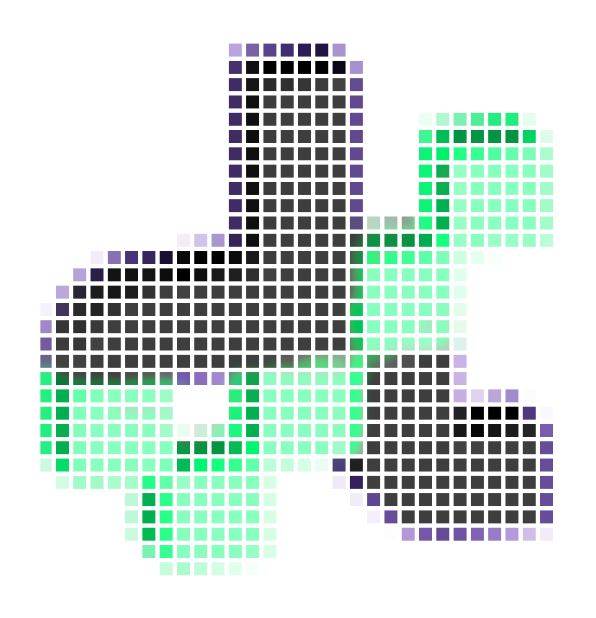DFFastGlobalRegistration component#
Inputs:
|
The source point cloud. |
|
The target cloud. |
|
The radius used to search for neighbors in the KDTree.it is expressed relative to the point cloud size (0.01 means radiusKDTreeSearch = 1% of maxSize(pointCloud). It is used for the calculation of FPFHFeatures. |
|
The maximum number of neighbors to search for in the KDTree. It is used for the calculation of FPFHFeatures. A higher value will result in heavier computation but potentially more precise. |
|
The maximum distance between correspondences. A higher value will result in more correspondences, but potentially include wrong ones. |
|
The number of iterations to run the RanSaC registration algorithm. A higher value will take more time to compute but increases the chances of finding a good transformation. As parameter of the FastGlobalRegistrationOption options. |
|
The maximum number of tuples to consider in the FPFH hyperspace. A higher value will result in heavier computation but potentially more precise. As parameter of the FastGlobalRegistrationOption options. |
Outputs:
o_x_form |
The computed transformation. |
Code:
#! python3
import Rhino
from ghpythonlib.componentbase import executingcomponent as component
from Grasshopper.Kernel import GH_RuntimeMessageLevel as RML
from diffCheck import diffcheck_bindings
from diffCheck import df_cvt_bindings
class DFFastGlobalRegistration(component):
def RunScript(self,
i_cloud_source: Rhino.Geometry.PointCloud,
i_cloud_target: Rhino.Geometry.PointCloud,
i_radius_kd_search: float,
i_neighbours_kd_search: int,
i_max_corrspondence_dist: float,
i_iteration_number: int,
i_max_tuple_count: int) -> Rhino.Geometry.Transform:
if i_cloud_source is None or i_cloud_target is None:
ghenv.Component.AddRuntimeMessage(RML.Warning, "Please provide both objects of type point clouds to align") # noqa: F821
return None
if not i_cloud_source.ContainsNormals or not i_cloud_target.ContainsNormals:
ghenv.Component.AddRuntimeMessage(RML.Error, "Please compute cloud's normals with a component before") # noqa: F821
# set default values
if i_radius_kd_search is None:
i_radius_kd_search = 0.8
if i_neighbours_kd_search is None:
i_neighbours_kd_search = 50
if i_max_corrspondence_dist is None:
i_max_corrspondence_dist = 0.05
if i_iteration_number is None:
i_iteration_number = 128
if i_max_tuple_count is None:
i_max_tuple_count = 1000
df_cloud_source = df_cvt_bindings.cvt_rhcloud_2_dfcloud(i_cloud_source)
df_cloud_target = df_cvt_bindings.cvt_rhcloud_2_dfcloud(i_cloud_target)
df_xform = diffcheck_bindings.dfb_registrations.DFGlobalRegistrations.O3DFastGlobalRegistrationFeatureMatching(
source=df_cloud_source,
target=df_cloud_target,
voxelize=False, # set as default
voxel_size=0.1, # set as default
radius_kd_tree_search=i_radius_kd_search,
max_neighbor_kd_tree_search=i_neighbours_kd_search,
max_correspondence_distance=i_max_corrspondence_dist,
iteration_number=i_iteration_number,
max_tuple_count=i_max_tuple_count
)
print("-------------------")
print("Estimated transformation matrix:")
print(df_xform.transformation_matrix)
print("-------------------")
# cvt df xform to rhino xform
df_xform_matrix = df_xform.transformation_matrix
rh_form = Rhino.Geometry.Transform()
for i in range(4):
for j in range(4):
rh_form[i, j] = df_xform_matrix[i, j]
if rh_form == Rhino.Geometry.Transform.Identity:
ghenv.Component.AddRuntimeMessage(RML.Warning, "The transformation matrix is identity, no transformation is applied") # noqa: F821
return None
o_x_form = rh_form
return o_x_form
